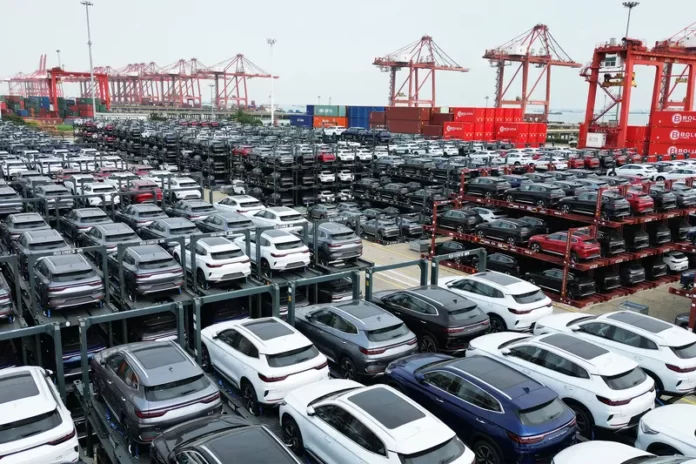According to the China Passenger Car Association (CPCA), China’s auto exports are forecasted to slow in 2025 after maintaining its position as the world’s largest auto exporter for the second consecutive year in 2024.
Export growth is expected to cool to 10%, with electric vehicle (EV) shipments predicted to stagnate, CPCA Secretary General Cui Dongshu said on Thursday.
China exported 4.8 million vehicles in 2024, a 25% increase from the previous year. In the first 11 months of 2024, it exceeded Japan’s 3.82 million vehicles. EV and plug-in hybrid exports, collectively called new energy vehicles (NEVs), grew 24.3% to 1.29 million units last year.
However, European tariffs on China-made EVs introduced in late 2024 and reduced shipments to Russia are expected to weigh on export performance in 2025.
Domestically, China’s car market continued its growth in 2024, with passenger vehicle sales rising 5.3% to 23.1 million units. NEVs accounted for 47.2% of total sales, supported by record-high sales of EVs and plug-in hybrids amid government subsidies.
Beijing extended these subsidies into 2025 to boost economic activity, aiming for NEVs to make up 57% of total car sales this year.
Local automakers such as BYD, Geely, and Xiaomi benefited from rising demand, while Tesla recorded a new high in China sales despite its global sales decline. However, foreign manufacturers like General Motors, Toyota, and Volkswagen lost market share to local competitors, struggling with overcapacity at their Chinese plants.
Despite sales growth, profitability in the auto sector continues to decline. Profit margins fell to 4.4% in the first 11 months of 2024, down from 5% in 2023 and 6.2% in 2020, driven by a prolonged price war that reduced component and vehicle prices.
The CPCA estimates overall car sales will grow by 2% in 2025, with NEV sales expected to rise 20%, marking the slowest growth since 2021. Government subsidies are anticipated to remain at high levels to support the sector.




